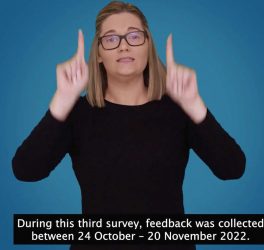
Malawi government and its development partners discuss the need to roll out a program to train and increase the number of sign language interpreters.
The Ministry of Gender, Children, Community Development and Social Welfare, Patricia Annie Kaliati, disclosed that the program’s primary goal would be to bridge the communication gap that people with hearing disabilities are facing to access various social and economic services.
Kaliati made Lilongwe’s remarks at the launch of International Week of the Deaf and International Day of Sign Languages.
This annual observance was proclaimed in 2017 by the United Nations General Assembly resolution 72/161.
The commemoration theme for this year is “Sign Language Right for All” In Malawi, the observance of the day, over the years, has been through an open day function. However, the government has postponed the open day function to a later date due to the prevailing Covid-19 pandemic, reports the Nyasa Times.
Kaliati said the observance of the day provides an opportunity for member states to recognize the importance of Sign Language to achieve sustainable development goals and fill the core promise of leaving no one behind.
“The theme reminds us all on the significance of sign language in the growth and development of deaf individuals and the attainment of the international and national development goals.
“More importantly is the principle of ‘living no-one behind’ as we work together to develop our society. For deaf people to meaningfully participate in our community activities, sign language is essential as a medium of communication. Without sign language, communities will continue to exclude people who are deaf,” said the minister.








